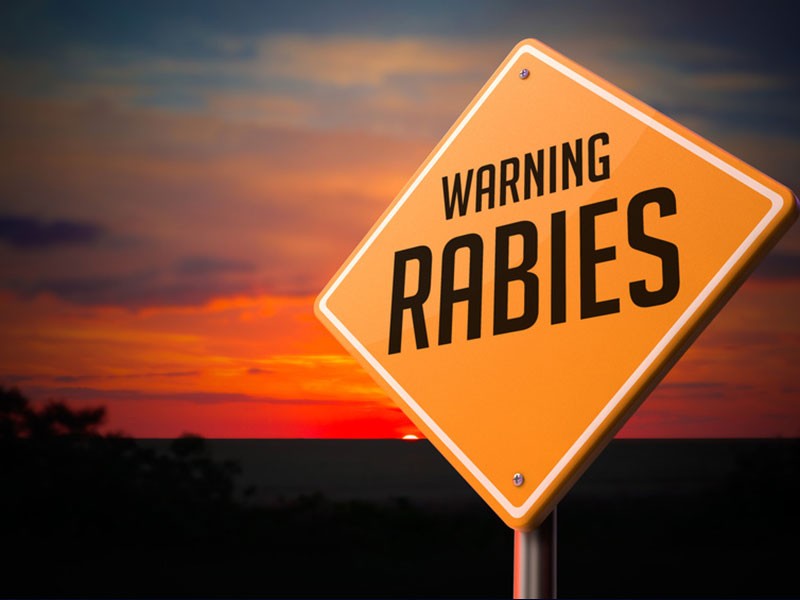GAINESVILLE - While it was a relatively quiet year for confirmed rabies cases in Hall County, the number has climbed from six to 15 in about two and a half months time.
The latest case, and the second last week, was confirmed by Hall County officials Thursday and involved a rabid skunk in the Pea Ridge Road area of north Hall County.
David Jones, Assistant Director of Hall County Animal Services, said there are likely a number of factors contributing to the spike in cases. He speculated that north Georgia's abundant rainfall in recent days may be a big one.
In Hall County, the bulk of rabies cases are confirmed in raccoons and skunks. Jones said those animals use creeks and streams like people use roadways.
"When those (creeks and streams) are on the rise, they may (raccoons and skunks) have to go further downstream where they can cross."
That alone may change their normal patterns, putting them closer to domestic animals. While the change alone doesn't result in more rabies cases, the odds of potential contact with pets, and therefore reports of cases, increase.
The problem comes with the effects rabies has on the behavior of the wild animals. Jones said it's typically not an issue of pets running free, it's the rabid animals that come into populated areas.
"They're going to come into contact with dogs in these situations without any fear in search of food or anything else. They will climb right over a fence to try to get to a dog or get to their food," Jones said.
Most of the recent cases have been reported in the north end of the county. Jones said his department has looked at the distribution of confirmed cases for several years. He said rabies seems to remain in the same general areas of the county.
"The normal population of racoons and skunks (live) in the area due to the streams and creeks," Jones said. "I think because the rabies is there, until something occurs different to minimize it, or worse, more animals become rabid, I think we'll continue to have a problem there."
With each reported rabies case, animal services officials remind residents to have their domestic animals vaccinated for rabies. Jones said it makes a big difference in the protocol his agency must follow if a dog is exposed to a rabid animal.
If the pet is not vaccinated, Jones said the owner must keep it in a six-month isolation with no physical touch from any people or other animals. If that's not an option, the animal must be euthanized.
The drill is much simpler if the pet had been vaccinated.
"Protocol is a rabies booster shot then a 45-day quarantine at home," Jones said.
Despite years of education efforts by groups across north Georgia, Jones said he frequently encounters pet owners who have not had their animals vaccinated . He called those situations sad.
"A ten dollar shot can make the difference in how you would have to quarantine your animal and the difference between being able to keep it and not keep it."
While Jones' department continues to remind pet owners to have their animals vaccinated for rabies, the news isn't all bad on the reported case front.
"In comparison to previous years, the numbers for last year this time are about the same. Actually for the year, we're actually low."

http://accesswdun.com/article/2015/11/349880/rainfall-may-be-factor-in-spike-in-hall-rabies-cases
